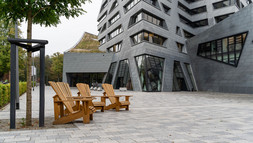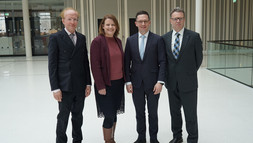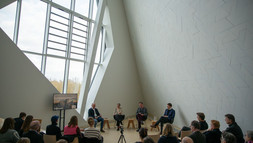Leuphana School of Education
The faculty's researchers investigate the individual and institutional prerequisites, processes, and outcomes of education, development, and social interaction. Both basic and applied research form the foundation of interdisciplinary, cooperative, and internationally compatible education, development, and social research. As one of the first universities in Germany, it implemented an institutional cooperation between educational sciences, psychology, subject didactics, and subject-specific disciplines in 2008 in the form of a “School of Education” and bundled it in the Faculty of Education in order to support interdisciplinary research, coordinated teaching content, and institutional cooperation with school practice and other institutions. Within this structure, the faculty offers study programs for teacher training (elementary, secondary, and vocational schools) as well as study programs in educational sciences, psychology, and social pedagogy.






![[Translate to Englisch:] Doppelinterview Pietsch](/fileadmin/_processed_/7/4/csm_2601_TV2_Doppelportraet_Scholz-Pietsch_Interview_mitQuellen_74221f21de.jpg)
